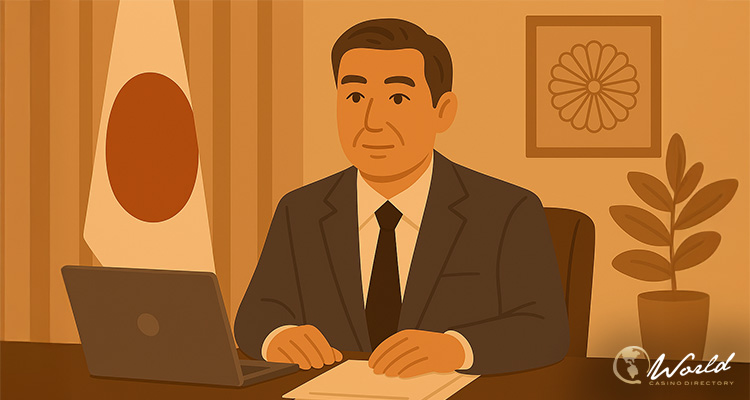Japan has confirmed the appointment of Toshiyuki Shimada as the new Secretary General of the Japan Casino Regulatory Commission (JCRC), effective July 1. This decision marks a pivotal shift in the country’s regulatory landscape, as Shimada steps into the role following the tenure of Takuya Sakaguchi, who has held the position since July 2023. Shimada’s promotion comes at a critical time when Japan is bolstering its oversight of both land-based and online gambling operations, which have attracted increasing government attention.
Shimada’s appointment and background:
Shimada’s career trajectory within the Casino Regulatory Commission has seen him progress from Deputy Secretary General to the top leadership position. Before his work with the JCRC, Shimada had a prominent career in Japan’s Ministry of Finance, where he gained experience that will be invaluable in his new role overseeing the regulatory framework for Japan’s expanding casino sector.
The JCRC, established in January 2020, is tasked with regulating Japan’s integrated resort (IR) projects and online gambling operations. As part of the government’s strategic efforts to promote sustainable tourism, Japan has proposed a budget of JPY 3.71 billion (approximately $25.6 million) for the commission this fiscal year. This move underlines the nation’s commitment to strengthening its gambling regulations, particularly as the sector is poised to undergo significant changes.
Shimada’s appointment is part of a broader reshuffling within the commission. Takafumi Sato, a former prosecutor, has been the commission’s chair since January 2025. Additionally, Junichi Kakimizu, a former head of the National Tax College, has joined the commission this year, further bolstering its leadership team.
Japan’s casino industry has experienced increased activity and investment in recent months. According to information reviewed by GGRAsia’s Japan correspondent, the government’s ongoing commitment to the development of integrated resorts (IR) is evident in the approval of the MGM Osaka project, a multi-billion-dollar development planned for Yumeshima Island in Osaka, set to open by 2030. The project is a joint venture between MGM Resorts International and Japan’s Orix Corp, and it marks the first successful IR project in Japan.
Despite the momentum behind this resort, Japan’s legal framework limits the number of IR licenses to just three. This restriction has led to intense competition among major casino operators and sparked debates about the long-term viability of the country’s gambling market.
New legislation and a crackdown on illegal gambling:
Shimada’s appointment comes amidst a broader push to tighten regulations within Japan’s gambling sector. In May, reports indicated that unauthorized online casino activity in the country had reached a staggering JPY 1 trillion. In response, the Japanese government has introduced several key pieces of legislation aimed at curbing illegal gambling practices and reducing the harmful impact of addiction.
The most recent developments include the passage of two significant bills. The first, aimed at minimizing gambling-related harm, was passed earlier this month by the House of Representatives. This legislation is designed to create a framework that better protects citizens from the dangers of gambling addiction. The second bill, introduced last week, focuses on anti-money laundering (AML) measures and aims to further address the issue of illegal gambling in Japan.
In addition to domestic reforms, the Japanese government has been proactive in its efforts to curb illegal online gambling by requesting foreign countries to block access to Japanese citizens on their legal online gaming sites. This move highlights Japan’s commitment to maintaining strict oversight of online gambling platforms.
The regulatory shift overseen by Shimada is crucial as Japan moves forward with its plans for a regulated casino sector. With his experience and leadership within the Ministry of Finance and the JCRC, Shimada is expected to play a key role in guiding Japan’s evolving regulatory framework. His leadership will be central as the country seeks to balance economic growth through the casino sector with the need for stringent oversight to protect against addiction and illegal gambling activities.



